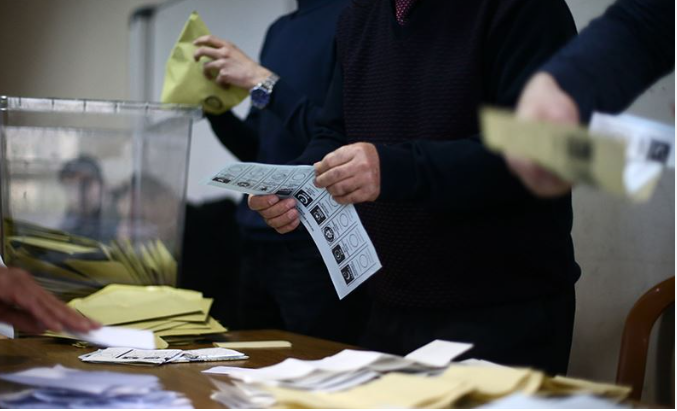At Fitch Solutions, we have outlined three possible scenarios for Turkey’s upcoming elections (scheduled for June 2023).
Our core view (55.0% probability) is that Recep Tayyip Erdoǧan wins another term as president in June 2023, but that his party loses its majority in the legislature.
We have also outlined two alternate scenarios (each 22.5%). In one, the ruling party retains its majority, but perceptions of electoral manipulation undermine the government’s standing.
In the other scenario, the president and his party both lose, ushering in an opposition-led government that attempts to reinstate more conventional and investor-friendly economic policymaking
WATCH: Can The Opposition Rescue Turkish Economy?
Main scenario (55%): Erdogan remains president, Grand Assembly goes to the opposition
In this scenario, we at Fitch Solutions expect a repeat of the general elections in 2015 when incumbent president Recep Tayyip Erdoǧan’s Justice Development Party (AKP) lost their parliamentary majority. Given that presidential polls will be held on the same day, we think Erdoǧan will scrape through a marginal win in the polls and will be obliged to accept these results in order to avoid pushing Turkey into prolonged political turmoil. Erdoǧan will placate any claims by his opponents of election fraud at the presidential polls by offering cabinet positions to these factions. We believe Erdogan will try and retain control of the foreign policy portfolio, as his positions on this front have mostly bipartisan support.
However, the opposition could take a greater role with regard to domestic economic management if Erdoǧan allocates his important positions to Republican People’s Party (CHP) officials. In turn, this could allow for return to some economic policy orthodoxy.
ECONOMIC IMPLICATIONS:
We believe that in this scenario, growth will start slowing in H223 and early 2024 as Erdoğan hands over some economic policy management to the opposition and Turkey slowly returns to policy orthodoxy. We expect the CBRT to raise policy rates in late 2023 and early 2024 to signal policy change. However, given that Erdoğan will remain president, investor confidence will be hard to come by. As a result, we expect the Turkish lira to remain on a depreciation trend in the first six months following the elections after which the currency will stabilise in a historically weak equilibrium.
Fiscal policy will remain mostly unchanged from the current approach, though the opposition may push for some supportive funding and as such the fiscal deficit will remain wider than it has been in recent history. We would expect the current account deficit to narrow gradually though import costs will remain high as the lira stays weak.
WATCH: Why Erdogan Will Never Win Another Election?
Scenario II: Erdogan wins presidency, AKP-MHP keep control of legislature (22.5%)
At Fitch Solutions we think that this scenario would be the most negative for the Turkish economy even as it means policy continuity. It is likely that the opposition would stage nationwide protests against the result, calling election fraud.
Erdoğan would push for further policy rate cuts to continue propping up growth – this would raise further pressure on the Turkish lira and could precipitate a balance of payments crisis.
In order to support the economy, the government would step in to bail out the external sector – this would widen the fiscal deficit to new record levels. Given high inflation, public debt levels would be controlled though interest repayments will get costly. A balance of payments crisis would lead to an economic recession and as such demand for imports will also collapse. It is likely that Turkey would gain some financial support from Saudi Arabia and other Middle Eastern countries and emerge out of the crisis, however, the economy would move into a low growth equilibrium thereafter.
SCENARIO 3: (22.5%)- Erdoǧan and his AK party lose elections
This scenario (upon which we place a probability of 22.5%) is that of a ‘regime change’. Since we at Fitch Solutions doubt that Erdoǧan would accept this result, the transition would likely be turbulent. Even if Erdoǧan declares a state of emergency or cancels the election results altogether, we would expect opposition supporters to push back against this through the mobilisation of large-scale protests, and we assume that he would eventually be forced to concede defeat.
There could be public and private pressure from Turkey’s US and European allies for Erdoǧan to manage a smooth handover. Amid short-term turmoil, political risk would be elevated and this would likely weigh on the lira. However, we believe that after Erdoǧan concedes, the opposition would make some quick fixes to stabilise the market – one of them would be to strengthen the independence of the central bank and see a return to conventional monetary policy.
In this scenario we would expect markets to get nervous about regime change but for confidence to be quickly restored after the CBRT is allowed a major rate hike. Tighter monetary conditions would send the economy into a short-lived recession but as international flows return to Turkey, the economy would return to a stronger growth trajectory.
It is likely, however, the fiscal balance under this scenario would widen as the opposition takes a less hawkish stance on government spending. The lira would strengthen over time but will not return to pre-crisis levels.
Excerpt from RISING RISKS TO TURKEY’S OUTLOOK, A SCENARIO ANALYSIS INTO TURKEY’S 2023 ELECTIONS
Follow our English language YouTube videos @ REAL TURKEY: https://www.youtube.com/channel/UCKpFJB4GFiNkhmpVZQ_d9Rg
And content at Twitter: @AtillaEng
Facebook: Real Turkey Channel: https://www.facebook.com/realturkeychannel/
